
Are you facing DWI charges in San Antonio TX? If so, you need legal assistance from an experienced DWI attorney. Texas DWI laws are very strict. They impose severe penalties, even if you have never had a DWI conviction before. Contact the Ernest Acevedo Law Group today at (210) 226-5656 to discuss your rights and options with a skilled criminal defense attorney.
San Antonio native Ernest Acevedo III has practiced law for nearly three decades. After graduating from St. Mary’s University, he obtained his law degree from Harvard University. Mr. Acevedo has extensive experience in criminal law, particularly DWI defense. He is a sought-after DWI expert in the San Antonio area and throughout Texas.
DWI cases are often difficult ordeals for defendants. You almost certainly have many questions, such as what kind of penalties you could face and what is going to happen to your driver’s license. Give our law office a call today to start getting answers.
Why You Should Call the Ernest Acevedo Law Group to Defend You in Your San Antonio DWI Case
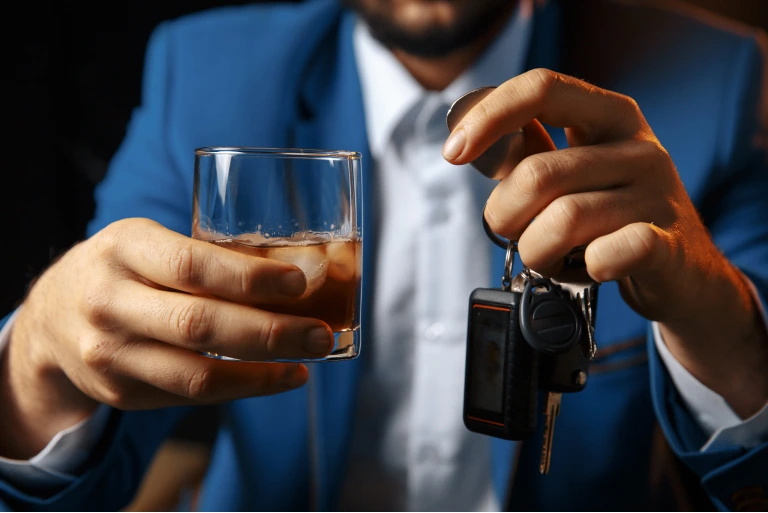
Driving while intoxicated (DWI) is a serious criminal offense in Texas. A DWI conviction can result in driver’s license suspension, fines, and jail or prison time. Prosecutors often pursue DWI cases quite aggressively to show that they are tough on crime. You need a DWI defense lawyer who will fight for your rights just as aggressively, both in and out of the courtroom.
San Antonio clients of the Ernest Acevedo Law Group can expect the best quality legal representation possible. You can expect the following and more from us:
- We will do everything we can to achieve your preferred outcome in your DWI case.
- We will conduct a thorough investigation, looking for flaws in the state’s case.
- We will draw upon our experience in criminal defense, DWI defense, and the Bexar County criminal court system to create a strategy for your DWI case.
- We will challenge every part of the state’s case to get prosecutors to reduce the charges or even dismiss the case.
- We will negotiate with prosecutors for a plea deal that might involve probation or deferred adjudication.
- We will fight for your rights at trial if necessary.
It is never too early to start preparing a defense. Contact our law offices today to learn more.
What Is DWI?
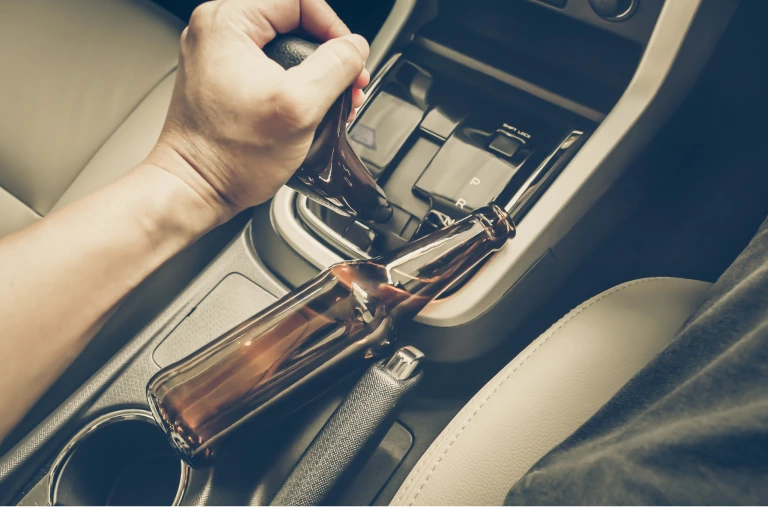
When most people think of DWI or DUI (driving under the influence), they probably imagine a visibly drunk person creating mayhem behind the wheel. Texas DWI laws cover many more situations than this.
The offense of DWI has three parts under Texas law:
- A person was intoxicated
- While operating a motor vehicle
- In a public place
Each of these elements has one or more specific legal meanings. They can cover more situations than many people might imagine.
1. “Intoxicated”
Texas law provides two definitions for “intoxicated”:
- Because of alcohol, legal or illegal drugs, or other substances, a person does not have “the normal use of mental or physical faculties,” and therefore cannot drive safely.
- A person has an “alcohol concentration” of at least 0.08 percent.
An alcohol concentration of 0.08 means that a person’s blood is 0.08% alcohol by volume. This level is often known as the “legal limit,” meaning that police will presume that someone is too impaired to drive. It is possible to get arrested for DWI even with a lower alcohol concentration if police think a person’s mental or physical faculties are impaired.
2. “Operating a Motor Vehicle”
A “motor vehicle” is almost any motorized vehicle that can operate on a street, road, or highway. A person does not have to be in the act of driving to get arrested for DWI. Police can arrest someone if it is clear that they were driving while under the influence, such as if an impaired person has just been involved in an accident.
A DUI conviction is also possible when an impaired person has not driven yet but looks like they are about to start driving. Police have arrested people who were sitting or sleeping in the driver’s seats of their vehicles with the engines running. Some courts have ruled that this indicates an imminent intent to drive, which poses a threat to public safety. How police, prosecutors, and courts handle this kind of situation can vary widely. While a person sleeping in the driver’s seat might have an intent to drive, someone sleeping in the back seat might not.
3. “In Public”
The Texas Penal Code defines a “public place” as anywhere “to which the public or a substantial group of the public has access.” This includes public roads, many parking lots, and other common areas.
How Do Prosecutors Prove Intoxication?
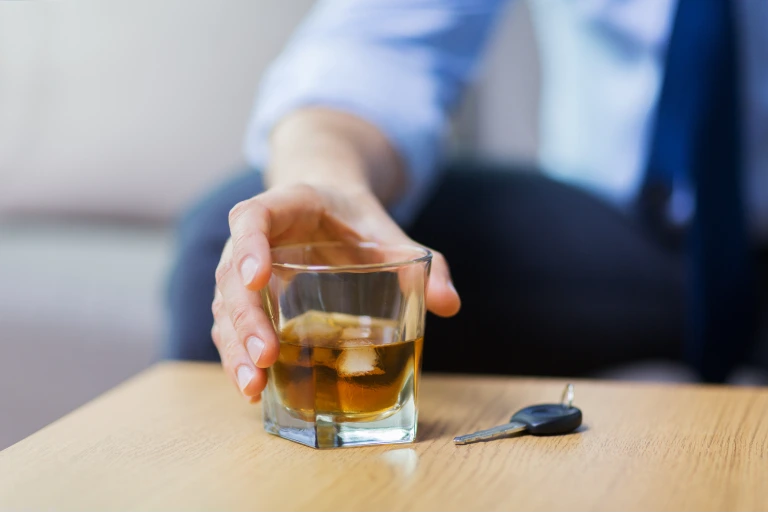
Prosecutors have the burden of proof in criminal law cases. They must prove each element of a criminal offense beyond a reasonable doubt. This is a difficult burden to meet. They must convince a judge or jury that there is no reasonable basis for finding that a defendant is not guilty of the criminal charges.
DWI defense lawyers often challenge prosecutors’ evidence of intoxication. Since Texas DWI law provides two definitions of “intoxication,” the state has several ways of proving that a defendant was intoxicated.
Alcohol Concentration
State law presumes that a person was legally intoxicated if their alcohol concentration was at or above 0.08. Police can determine a person’s alcohol concentration by testing samples of their breath, blood, or urine. Each of these methods is subject to challenge by DWI lawyers.
People do not have to submit to breath, blood, or urine testing under Texas DWI laws. This just means that a person who refuses will not have any additional criminal charges for refusing. They could, however, face driver’s license suspension by the Texas Department of Public Safety (DPS) in addition to a DWI charge.
Breath Tests
A device commonly known as a breathalyzer can test a person’s alcohol concentration by measuring the amount of alcohol present in a sample of their breath. Police officers may carry portable breathalyzers that they can use during traffic stops. They may also have devices at police stations that they use after DWI arrests.
Breathalyzers can return results very quickly, but they can also be prone to errors:
- A person must blow into the device to provide a breath sample. A police officer must monitor them closely to make sure they do it correctly. Otherwise, the results could be wrong.
- If the device has not received proper maintenance, it can return incorrect results.
- Certain medical conditions, such as diabetes, heart disease, and acid reflux, can produce false positive breathalyzer results
Urine or Blood Tests
Police can send urine and blood samples to a laboratory to test alcohol concentration. While a breathalyzer can produce results in a matter of seconds, laboratories may need weeks or longer.
Errors are also possible with laboratory testing:
- A technician mislabeled blood or urine samples;
- Samples became contaminated during testing, such as by coming into contact with other samples or foreign substances; or
- A laboratory cannot provide a clear chain of custody for a defendant’s sample, making it impossible to be certain the test results are valid.
These types of tests tend not to be as common as breath tests because they are more invasive. A breathalyzer only requires someone to blow into a tube. Collecting a blood sample requires the services of a trained medical technician to draw blood from a vein. Collecting a urine sample involves a very private, personal act. If a person does not consent to giving a blood or urine sample, police may need to get a warrant from a judge.
Mental or Physical Faculties
Police can arrest someone for DWI and prosecutors can obtain convictions even without evidence of an alcohol concentration above the legal limit. This requires proof beyond a reasonable doubt that a person had impaired “mental or physical faculties,” often in the form of witness testimony.
Eyewitness Testimony
Prosecutors can call police officers and others who saw a defendant at or near the time of their arrest to testify about the defendant’s appearance or behavior. Testimony that could support a finding of legal intoxication may include:
- A strong alcohol odor;
- Slurred speech;
- Glassy eyes; and
- Swaying and other movements that suggest intoxication.
Some police officers have training in how to recognize behaviors and other physical signs associated with different types of drugs. Known as drug recognition experts (DREs), these officers can supposedly tell what drugs a person has most likely taken by observing them. The use of DREs in DWI cases is controversial.
Field Sobriety Tests
Police can ask a person suspected of DWI to participate in field sobriety tests (FSTs). These tests allow police officers to look for certain signs of intoxication or impairment. The officers can testify about how a defendant performed on the tests. Prosecutors can also introduce video footage of the FSTs if it is available. FSTs are not legally mandatory, but much like with refusal to submit to breath testing, refusal can result in driver’s license suspension by DPS.
Texas courts recognize three standardized FSTs:
- Horizontal gaze nystagmus: An officer holds an object in front of a person’s face and moves it from left to right. The person is supposed to follow the object with their eyes, without moving their head. The officer is looking for involuntary eye movements, known as “nystagmus,” that are correlated with intoxication.
- One-leg stand: A person must lift one leg six inches off the ground and hold it there while counting to thirty, keeping their arms at their sides. The officer looks for swaying and other signs that the person is off-balance.
- Heel-to-toe walk: The officer instructs the person to walk heel-to-toe along a straight line for nine steps, counting each step, then turning and walking back the same way. The officer is looking at the person’s balance and their ability to follow directions.
Poor performance on any of these FSTs can have reasons other than intoxication. Many conditions can cause nystagmus or poor balance. Injuries, weather conditions, and uneven surfaces can also interfere with the tests.
What Are the Defenses to a San Antonio DWI Charge?
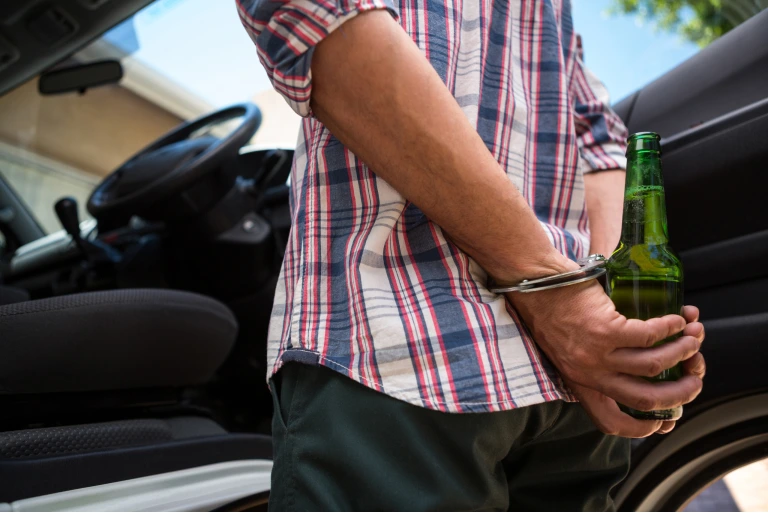
The specific defenses available to you will depend on the facts of your case. The following are some defenses that could be available in a DWI defense case.
Violations of Constitutional Rights
People have a right to be free from “unreasonable searches and seizures” by police. In DWI cases, this means that police cannot pull your vehicle over unless they have reasonable suspicion of a legal violation. For example, a police officer can pull you over if they see you run a red light. If they then notice signs of intoxication, such as slurred speech or an odor of alcohol, they may continue an investigation into DWI.
Police cannot stop your vehicle without this kind of justification. The one exception is when they are running a DWI checkpoint in a fixed location for a limited time. If police stopped your vehicle in violation of your rights, your lawyer can ask the court to throw out all of the evidence that police obtained from the traffic stop.
Challenges to Chemical Testing
Police officers and other police department employees must follow strict procedures to ensure that test results for breath, blood, or urine samples are reliable. Failing to follow these procedures can call the validity of the evidence into question.
Your rights regarding unreasonable searches and seizures also apply to the collection of blood and urine samples. Police cannot compel you to provide samples of either against your will without a warrant from a judge.
Lack of Evidence of Guilt
Your DWI defense lawyer can challenge other evidence against you. This often involves presenting alternative explanations that do not involve intoxication. Suppose, for example, that a police officer testified that you failed the one-leg stand test. Your lawyer could introduce evidence that counters the state’s story of what happened, such as medical records showing a leg or back injury that would make the test impossible for you.
What Are the Possible Penalties for DWI?
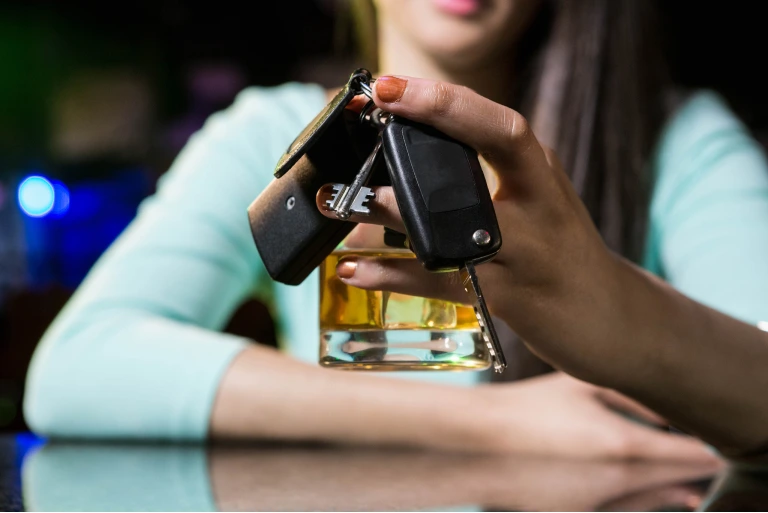
Penalties for a DUI conviction may include fines and jail or prison time. You could face driver’s license suspension even without a conviction. DWI is normally a Class B misdemeanor, but numerous factors could make it a more serious offense.
Misdemeanor DWI
At a minimum, DWI is a Class B misdemeanor with a minimum jail sentence of three days. The minimum penalty goes up to six days if you have an open container of alcohol in the vehicle.
DWI is a Class A misdemeanor in the following situations:
- Alcohol concentration of 0.15 or more: A fine of up to $4,000 and up to one year in jail
- One prior DWI conviction: Minimum thirty days in jail
Felony DWI
Certain circumstances elevate different types of DWI cases to felony offenses:
- A child under the age of 15 was in the car: State jail felony, six months to two years in jail
- Prior conviction for intoxication manslaughter: Third-degree felony, two to ten years imprisonment
- Two prior DWI convictions: Third-degree felony
Each of these offenses may also result in a fine of up to $10,000.
Driver’s License Suspension
As discussed above, you could face immediate suspension of your Texas driver’s license if you refuse breath testing or FSTs. Driver’s license suspension may also result from DWI charges and convictions.
You can challenge your driver’s license suspension by asking DPS for an administrative license revocation hearing. DPS sets a quick deadline for making this request, so you and your DWI attorney need to act fast.
Can I Refuse a Breath Test?
You will not face any additional criminal charges on top of DWI if you refuse a breath test. You could face suspension of your driver’s license, though, as discussed above.
Administrative License Revocation Hearings
When faced with a DWI arrest in Texas, one of the immediate concerns is the potential suspension of your driver’s license. An Administrative License Revocation (ALR) hearing provides individuals with the opportunity to contest the suspension of their driver’s license that was issued following a DWI arrest. Understanding your rights and the ALR hearing process is crucial for safeguarding your driving privileges.
The deadline for filing a request for an administrative hearing following a DWI arrest in Bexar County or the Texas Hill Country is 15 days. If a request for an administrative hearing is not filed within 15 days of a DWI arrest, the driver’s license will be automatically suspended.
Having an experienced DWI attorney by your side during the ALR hearing can significantly improve your chances of retaining your driving privileges, as they can present evidence and arguments in your favor.
What Should I Do if Police Suspect Me of DWI?
If a police officer has stopped your vehicle and is asking questions related to DWI, the following tips can help you protect your rights:
- Be polite.
- Be aware that the officer is looking for signs of intoxication.
- Do not admit to anything.
- Know your rights, but remember that refusing breath testing or FSTs has consequences for your driver’s license.
- Contact a DWI lawyer as soon as possible.
What are the Penalties for DWI Cases in San Antonio, TX
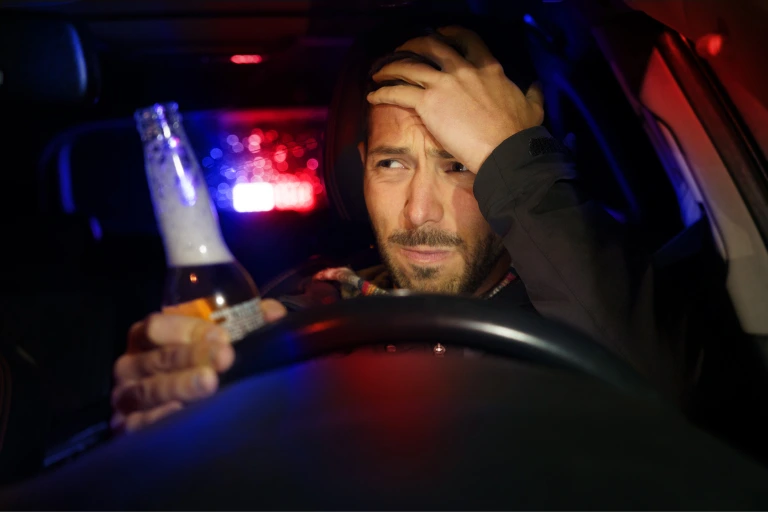
Penalties for DWI cases in San Antonio, TX vary based on factors such as the level of impairment, number of offenses, and presence of aggravating circumstances.
In this section, we will explore the specific penalties related to various DWI cases, including general impairment, high BAC, and penalties based on the number of offenses.
GENERAL IMPAIRMENT DUI PENALTIES
General impairment DUI penalties in Texas vary depending on the specific circumstances of the offense. For a first-offense general impairment DUI, the driver may be subject to six months of probation and a fine of $300.
In addition to these penalties, the individual may face license suspension, mandatory alcohol education programs, and increased penalties for subsequent convictions.
HIGH BAC DUI PENALTIES
In San Antonio, TX, the penalties for DWI cases with a high BAC can include:
- Jail sentence ranging from three to 180 days
- Fine of up to $2,000
- License suspension of between 90 to 365 days
- Additional sanctions for driving with a high BAC or with a child passenger.
Being cognizant of these penalties and the potential consequences of driving under the influence with a high BAC is crucial.
HIGHEST BAC DUI PENALTIES
The most severe BAC DUI penalties in Texas involve a fine of up to $2,000, incarceration of up to 180 days, and a driver’s license suspension of up to two years.
The consequences for a first offense, a second offense, a third and fourth offense are also severe, with fines, jail time, and license suspensions increasing with each subsequent offense.
PENALTIES BASED ON NUMBER OF OFFENSES
Penalties for DWI offenses in Texas depend on the number of offenses on the individual’s record. Consequences for DWI offenses can include:
- Imprisonment
- Fines
- Mandatory alcohol assessment and treatment
- Community service
- License suspension
For a first offense, the penalties may include a fine of up to $2,000, up to 180 days in jail, and a license suspension of up to one year.
For a second offense, the penalties may include a fine of up to $4,000, up to one year in jail, and a license suspension of up to two years.
For a third offense, the penalties may include a fine of up to $10,000, up to 10 years in jail, and a license suspension of up to two years.
First Offense:
A first-time DWI offense in Texas may result in the following consequences:
- Fines of up to $2,000
- Incarceration for up to 180 days
- Revocation of the driver’s license
- Community service
- Probation
- Mandatory alcohol education programs
- Increased penalties for subsequent convictions
It is crucial to understand the penalties associated with a first offense DWI in Texas and to seek experienced legal counsel to defend against the charges.
Second Offense:
A second DWI offense in Texas is classified as a Class A misdemeanor, with the following penalties:
- Maximum fine of $6,000.00
- Maximum jail sentence of 12 months
- Permanent conviction
- 3-day jail sentence even if probation is granted
- Driver’s license suspension
- Ignition interlock device requirement as a bond condition for all DWI 2nd charges.
Understanding the penalties for a second DWI offense and the importance of seeking knowledgeable criminal defense is essential.
Third Offense:
A third DWI offense in Texas is classified as a felony of the third degree, with the following penalties:
- Maximum fine of $10,000
- Maximum prison sentence of 10 years
- Permanent conviction, necessitating a 10-day jail sentence even if probation is granted
- Driver’s license suspension
- Ignition interlock device requirement as a bond condition for all DWI 3rd+ charges.
Comprehending the severe penalties for a third DWI offense in Texas is crucial, and seeking experienced legal counsel is vital to protect your rights and mitigate the potential consequences.
Fourth Offense:
A fourth DWI offense in Texas is a serious charge with severe penalties. The consequences for a fourth DWI offense may include a fine of up to $10,000, up to 10 years in jail, and a license suspension of up to two years.
Like other DWI offenses, comprehending the penalties and the necessity of seeking expert legal advice is crucial to safeguard your rights and navigate the intricate legal process.
What Defenses Can Be Raised if I’m Arrested on DWI Charges?
If you’ve been arrested on DWI charges, be aware that there are several defenses that can be used to challenge the charges. An experienced DWI defense lawyer can help identify potential issues with the traffic stop, the chemical tests administered, and the field sobriety tests. Successfully challenging these aspects of the case can lead to evidence being excluded from the case and potentially result in a dismissal of the charges.
Some common defenses in a DWI case include:
- Challenging the legality of the traffic stop
- Questioning the accuracy of the breath or blood test
- Asserting that the officer lacked probable cause to effect the arrest, which could potentially reduce DWI arrests
- Challenging the performance or interpretation of field sobriety tests
An experienced San Antonio DWI attorney, who is also a skilled criminal defense attorney at a criminal defense law firm, can safeguard your rights and potentially lessen the consequences of a DWI charge by raising criminal defense strategies tailored to your case.
Schedule a Free Consultation With an Experienced San Antonio DWI Attorney
A DWI arrest is stressful, whether it is happening to you or a family member. The Ernest Acevedo Law Group is here to help. We can provide legal representation to defend you against the state’s DWI charges. Every defendant in the criminal justice system is innocent until proven guilty. We will work to make sure the system respects your rights at all times.
We offer a free consultation with no obligation. You can decide if we are the best DWI attorney for you and your needs. Contact us today at (210) 226-5656 so we can get started fighting for you.

